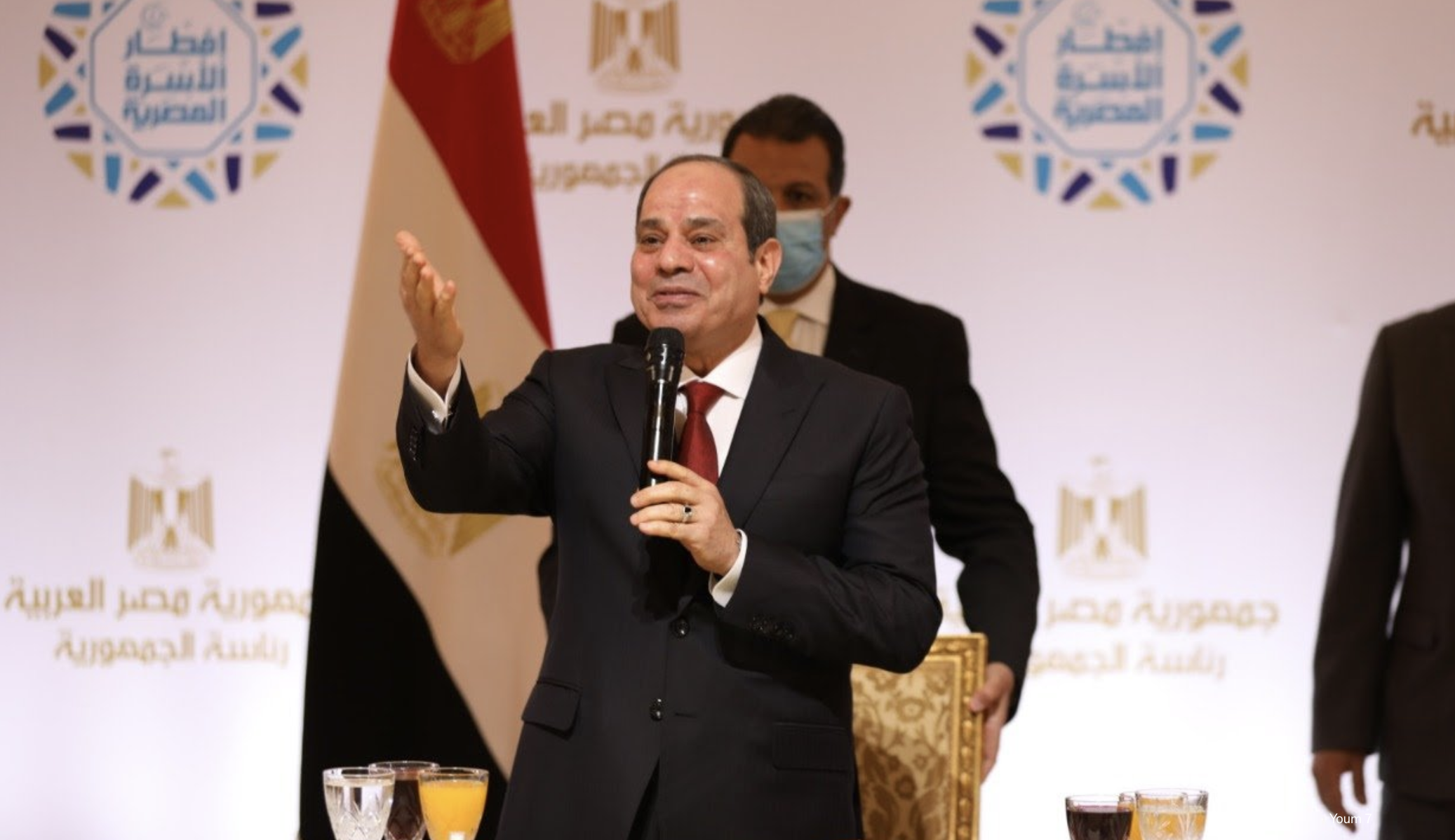Egypt still holds 21 journalists despite a series of presidential pardon
The President of Egypt, Abdel Fattah El-Sisi | Photo Credit: RSF
Reporters Without Borders (RSF) welcomes the release of five journalists in recent months in Egypt but points out that the entire country is an open prison for media personnel and that 21 journalists are still jailed, including Alaa Abdel Fattah, who completed his fourth month on hunger strike yesterday.
“We hail the release of journalists and we take note of this gesture by the authorities,” RSF’s Middle East desk said. “But the releases are being made piecemeal and are insufficient. The Egyptian authorities continue to hold around 20 journalists and seem to want to make no concessions on some of the most emblematic cases.”
Seven prisoners – including freelance journalist Hisham Fouad – were freed at the end of July (prior to the Muslim New Year), in the latest batch of presidential pardons since the start of the year. He was preceded by Al-Karama reporter Hossam Moanis, who was one of the more than 3,000 prisoners pardoned on 25 April, Sinai Liberation Day. These two journalists were arrested on the same day in June 2019 and were convicted in the same case in November 2021.
Superkoora editorial director Hany Grisha (held since August 2020) and Amer Abdel Monaem, the editor of the newspaper El-Shaab (held since December 2020) were released at the end of April under a pardon for more than 980 prisoners for Eid al-Fitr, the festivity marking the end of Ramadan.
Khaled Ghoneim, a Masr Alhayah TV presenter held since April 2020, was released at the end of May as a result of a judicial decision unrelated to any presidential pardon.
Bogus “National Strategy for Human Rights”
These mass releases are part of a five-year “National Strategy for Human Rights” launched by the government in September 2021, which is supposed to result in reforms that give Egyptians more freedoms, including press freedom. The authorities aim to get civil society to participate in “national dialogue” consultations that began in July and are supposed to produce proposals.
Joe Biden’s arrival in the White House has prodded Egypt into good conduct gestures. The United States provides Egypt with $1.3 billion in military aid each year and the disbursement of another $130 million is now conditioned on respect for human rights.
So, at the end of April, President Abdel Fattah el-Sisi announced the reactivation of the Presidential Pardons Committee, a mechanism initially created in October 2016 to examine requests for pardons from detainees and to issue release decrees in his name. National festivities and public holidays such as the 70th anniversary of the “July 23 Revolution” (the military coup by the Free Officers Movement) and Eid al-Adha are typically regarded as
appropriate occasions for pardons.
Nonetheless, a total of 21 journalists continue to the detained in Egypt. They include the bloggers “Mohamed Oxygen” and Alaa Abdel Fattah, who were sentenced in December 2021 to four years and five years in prison, respectively, on charges of “membership of a terrorist group” and “spreading fake news.” Fattah has been on a hunger strike since 2 April and, according to his sister, Mona Seif, several of his fellow detainees were considering a “group suicide” after learning they were not on the list of prisoners to be pardoned.
Those detained also include Alia Awad, a freelance photographer sentenced in late June to 15 years in prison on terrorism charges dating back to 2013, and four Al Jazeera journalists – Rabie El-Sheikh, Ahmed El-Nagdy, Bahaa Ed-Din Ibrahim and Hesham Abdel Aziz – who have been held preventively for periods ranging from one to three years on charges of "membership of a terrorist group” and “spreading fake news.”
Online access to Al-Manassa, an independent Egyptian news website, has been blocked in Egypt since last month. More than 500 websites have been made inaccessible since 2017, including RSF’s.
Source: RSF

